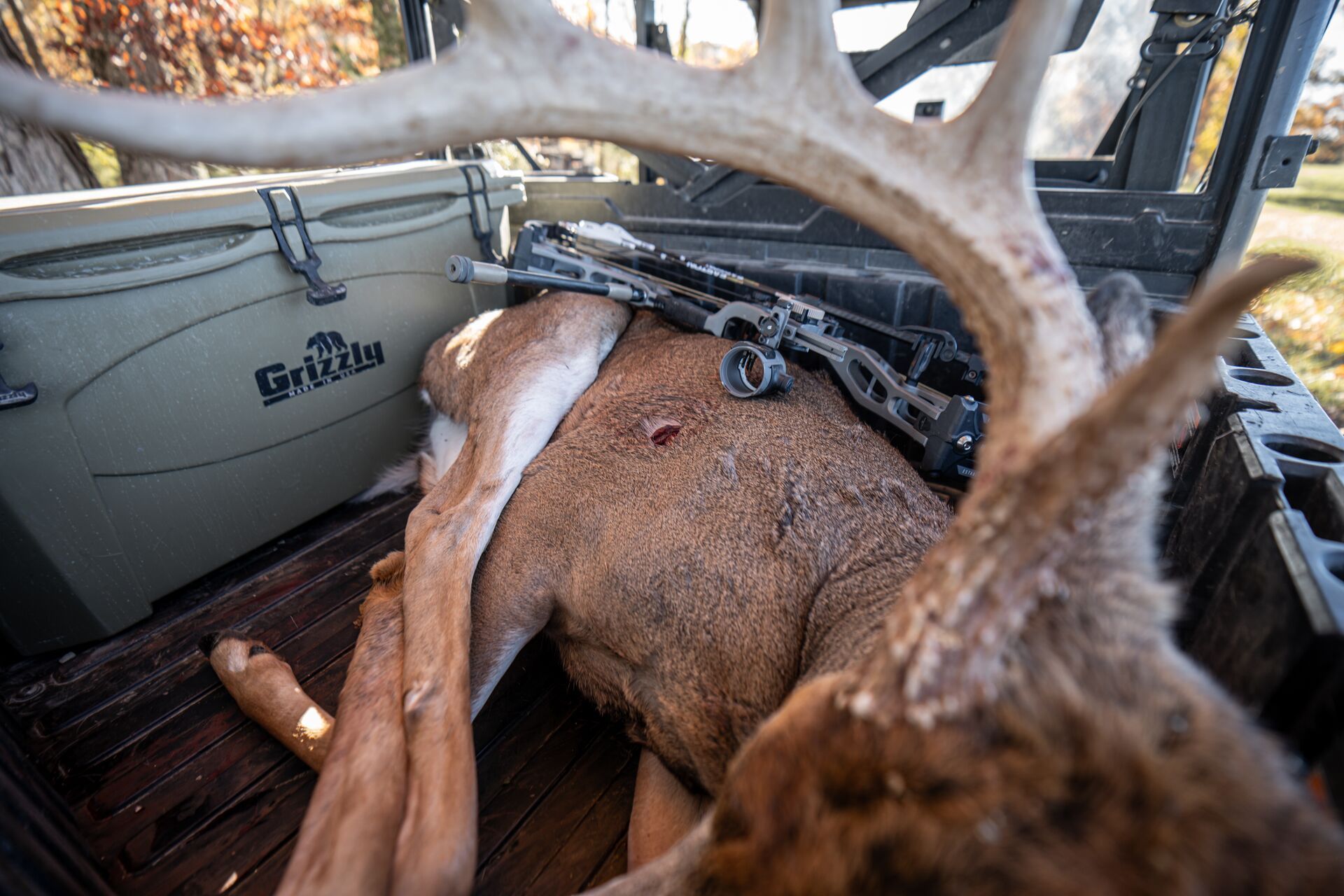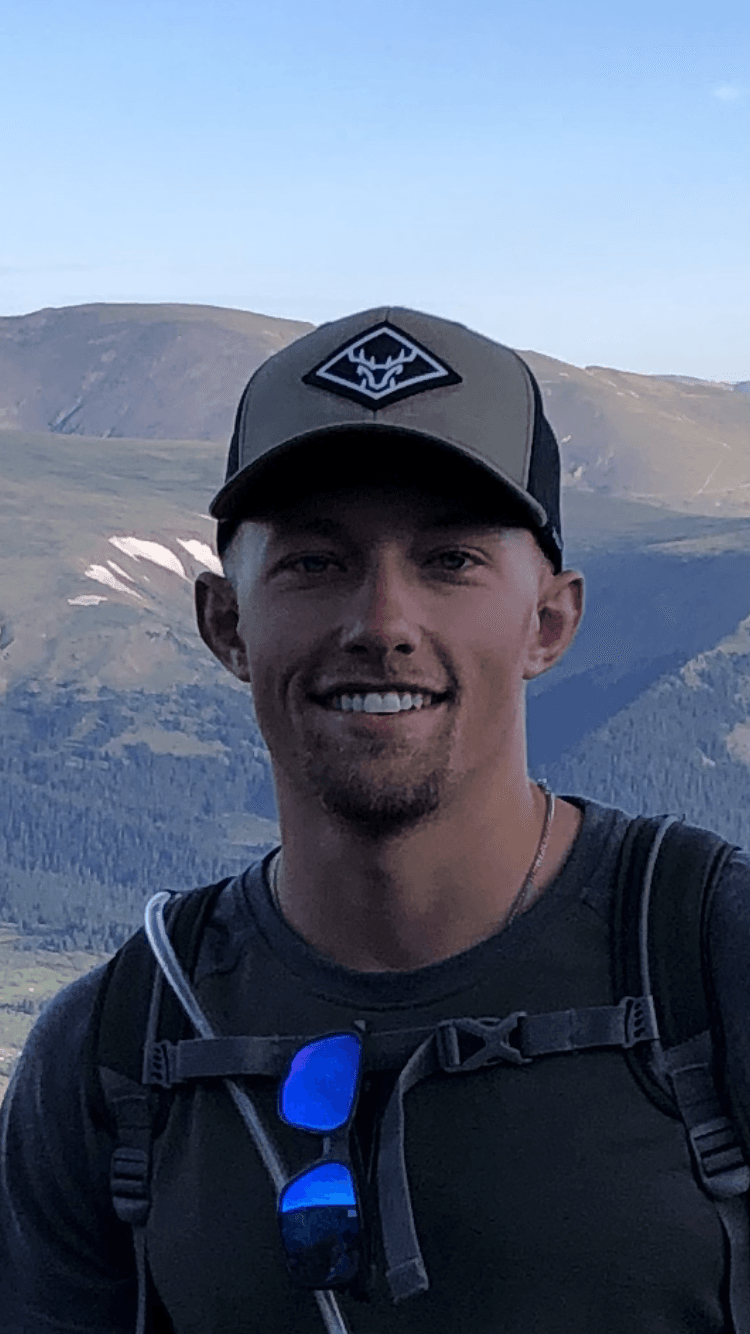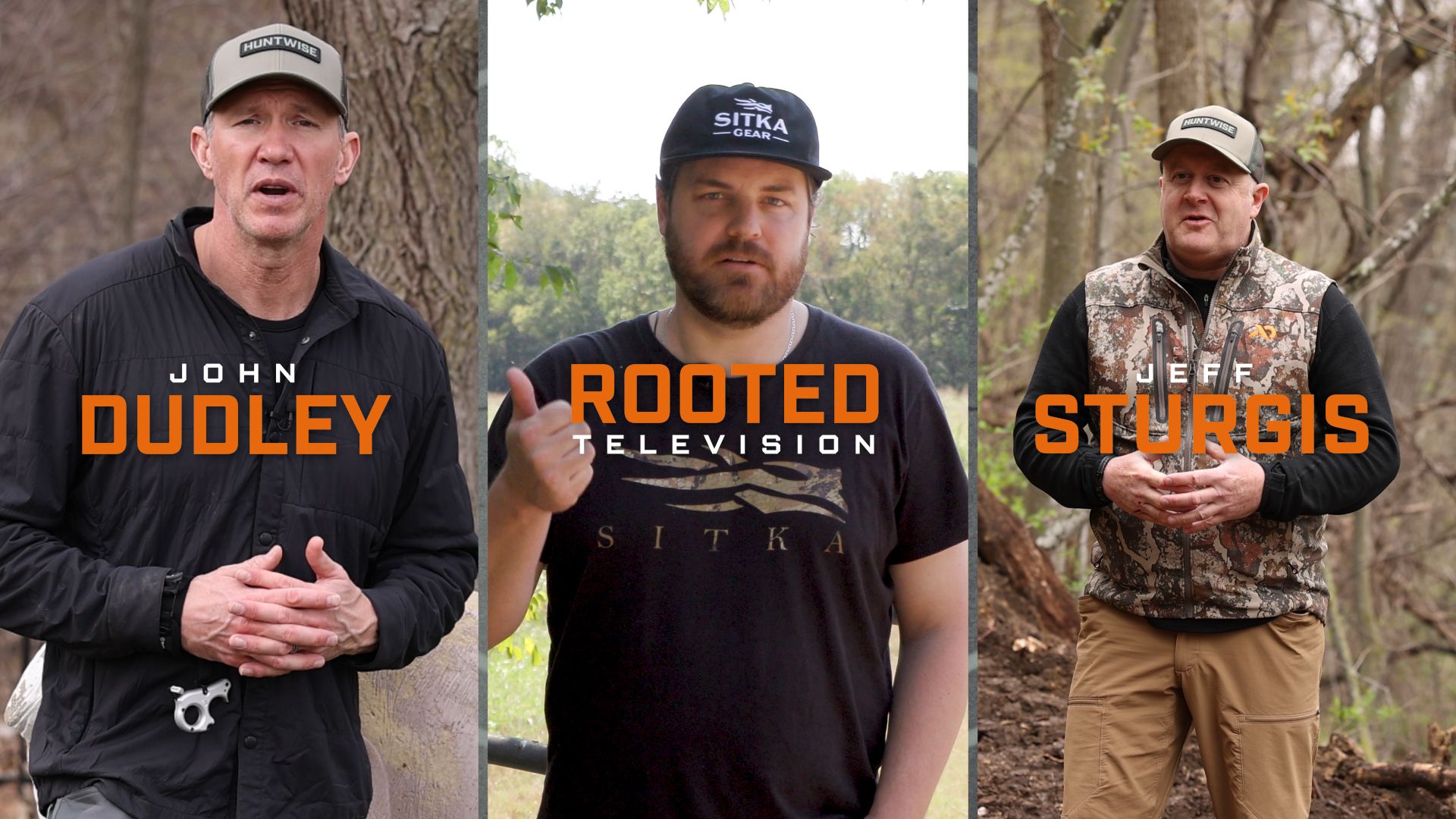The most important part comes next: putting an ethical and lethal shot on the deer in front of you.
This is where so many hunters stumble on their way to wrapping their hands around a stud of a buck, and on top of that, being an ethical hunter should be our number one priority. Correct shot placement is the difference between a deer expiring after a short 40-yard sprint or a major chase over several miles, which we absolutely do not want; trust me, I've been there!
We're here to know where to shoot a deer and help you land that clean shot. So, today, we share some deer shot placement tips so you can take down a buck with an ethical shot (and less work tracking it after the shot).
Updated November 14, 2025
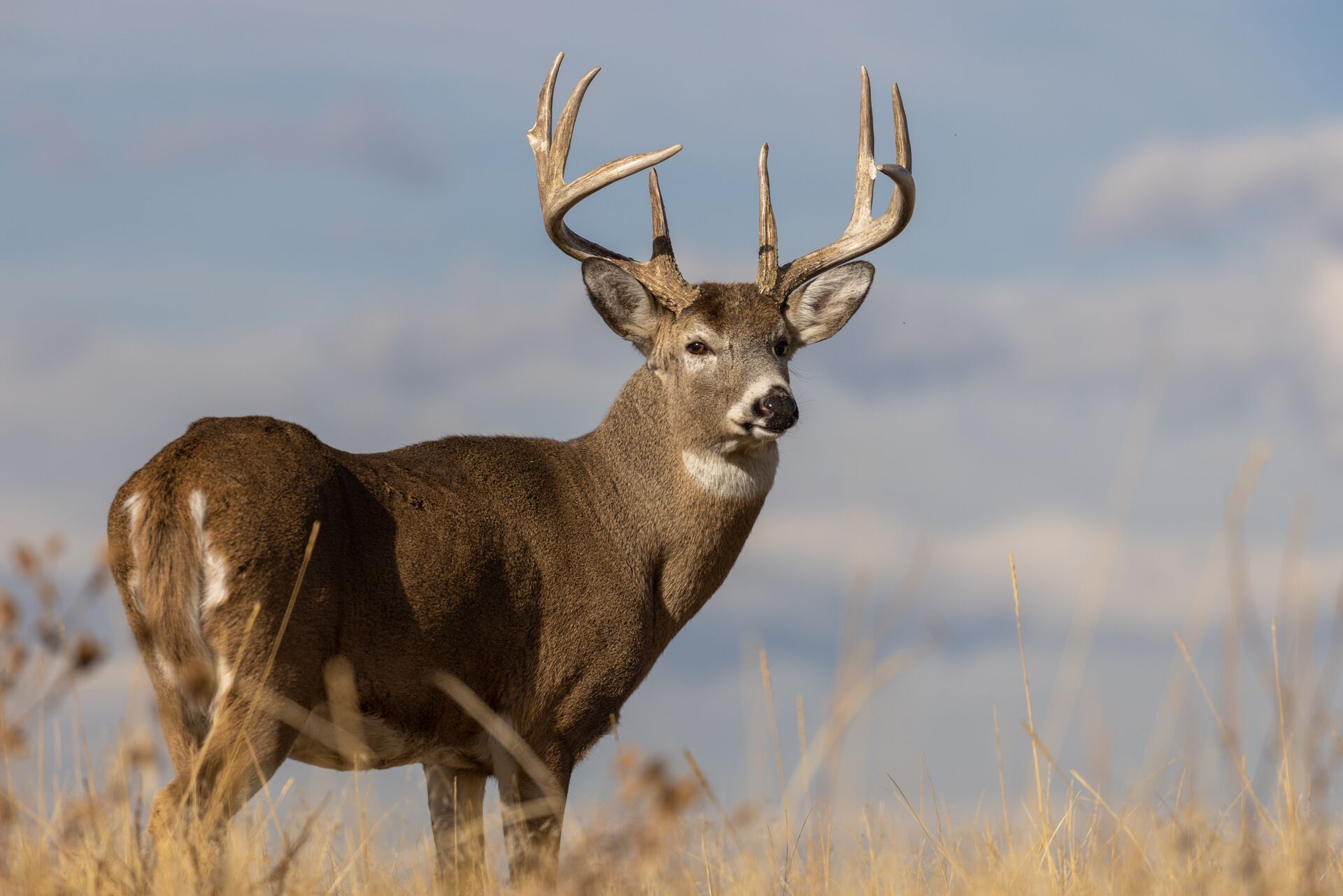
The Top Two Organs You Want to Hit
There are two ideal organs (or deer vitals) that you want to hit when aiming at a deer.
- The first and most lethal, but harder to hit, is the heart, which is tucked right behind the front leg if it is straight down. But you have to be careful because if the front leg is back, then you'll be hitting bone and decreasing your chances of making a kill shot. However, when you do it, a heart shot will put a deer down extremely quickly.
- The second organ you want to be shooting for is the lungs. These are right behind the front shoulder. Usually, if a deer is broadside to you, you can aim directly behind the outline of their front shoulder blade and hit the lungs. This is a lethal shot every time; if you double-lung them, they will expire very quickly.
However, if the deer is quartering away or quartering towards you and you only get a single lung, then they can run much further. Your chances of recovering that animal go way down.
Wait for a Broadside Shot
As I mentioned earlier, a broadside shot is the most ideal deer shot placement. When they are standing broadside, you'll want to aim approximately an inch back from the front shoulder. You should be able to see the outline of this spot.
By aiming here, you'll be able to hit both lungs. Depending on the type of broadhead you are using, or if you are using a gun, you will exit out the opposite side, which will allow for more blood to spray out, making it much easier to track.
If a deer is quartering away, which means they are angled and facing away from you, you'll want to aim about 3/4 of the way down their rib cage, depending on how angled they are.
Essentially, you want to try aiming at the opposite side of the shoulder. Depending on the angle, shot placement, and whether you are up in a tree or on the ground, this will get you the lungs and maybe the heart.
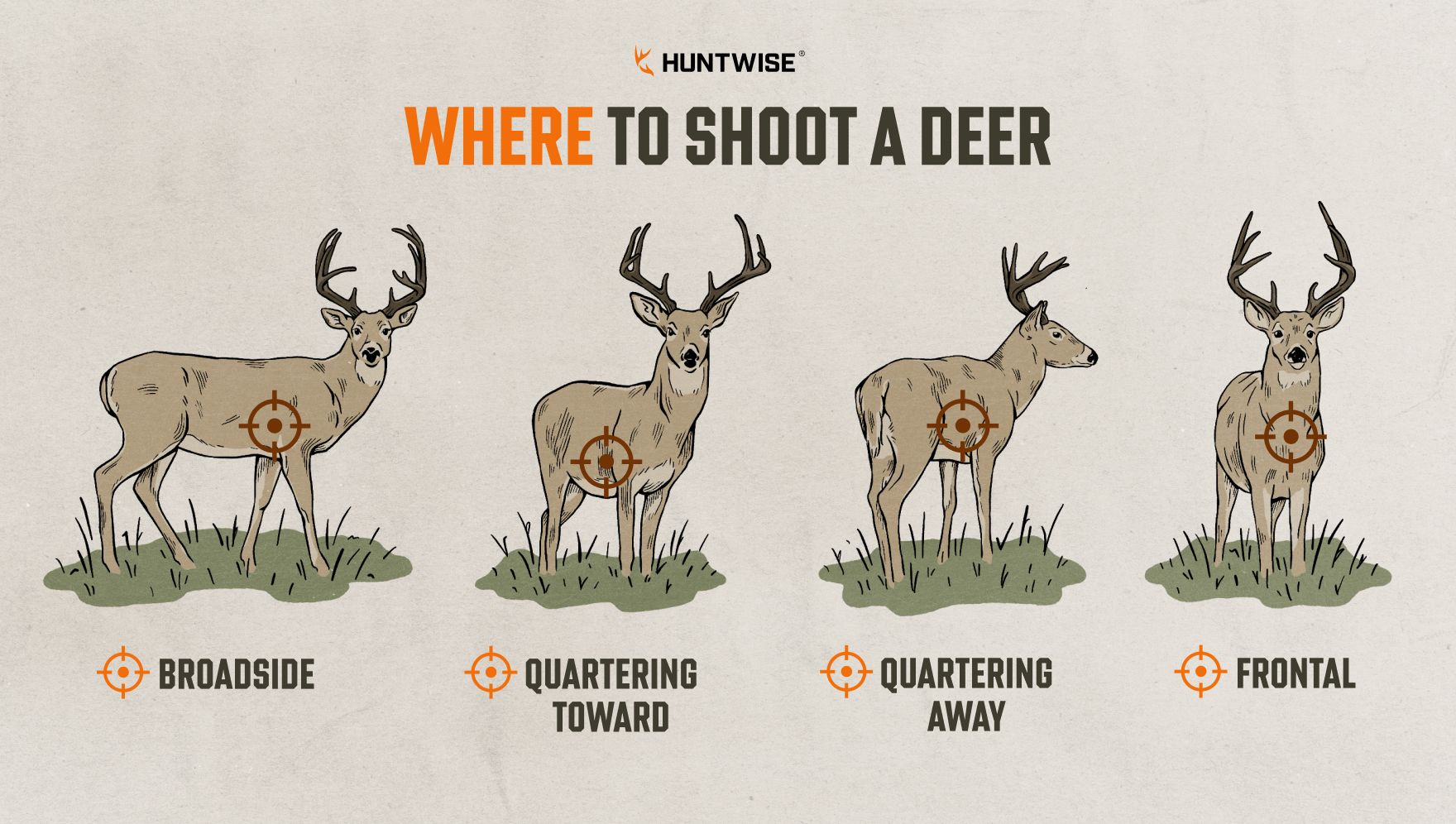
What Deer Shot Placement Should You Avoid?
Some places you want to avoid hitting a deer are the neck, although this can be lethal as well. You also want to avoid the liver and the guts.
If you shoot a deer in the liver, they will bleed a lot, making you feel like you made a great shot. But unfortunately, liver-shot deer take a long, long time to die.
The liver is directly behind the lungs, so if you hit too far back, this is most likely what you'll be hitting. With this deer shot placement, sometimes it can take up to 18-24 hours for a deer to die, so we want to avoid this if we can.
You can tell a deer is liver hit if you look at your arrow or the blood on the ground, and it's thick red blood. Compare this to a lung shot, when the blood will be a lighter or brighter red and will have small air bubbles.
The Gut Shot
Now if you gut shoot a deer, it can still be and most of the time will be a lethal hit. However, there is no telling how long it will take for that deer to die.
If you go in too early and it has the strength and adrenaline to get up and run, there is a good chance you may never find it back, as the wound would probably be closed up.
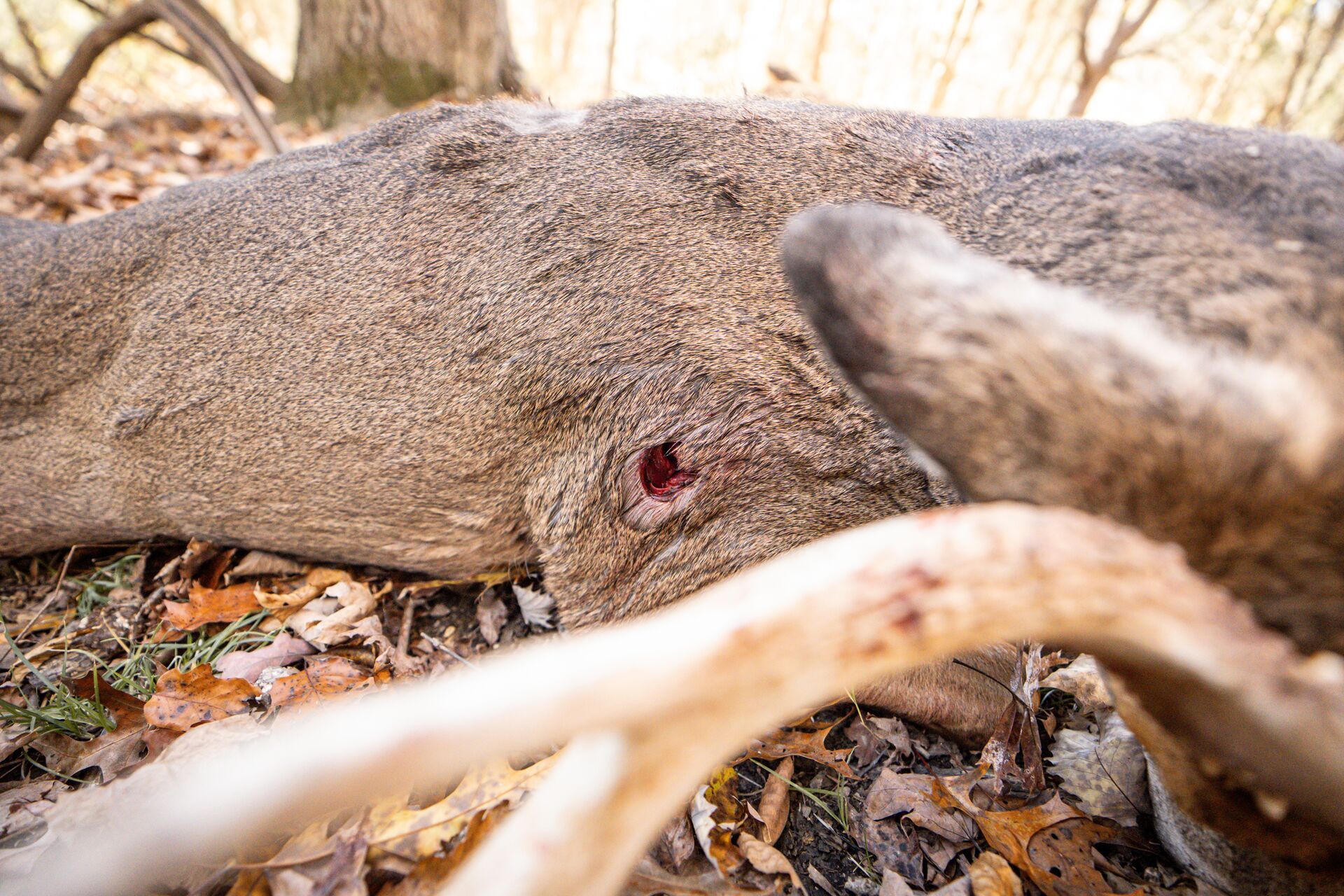
What to Consider Before Taking Your Shot
Now, one thing to consider before you even take a shot is the distance.
Use your range finder and range how far away the deer is so that you know what pin to use on your bow, or if you need to compensate where the crosshairs need to be. If you don't know how far away the deer is, it comes down to plain luck whether or not you make a lethal shot. But, this is not an ethical way to hunt because this just leads to wounded deer.
Another thing to consider is whether you have a clear shot path. This is especially critical if you are hunting with a bow.
One thing that I try to pay attention to is how calm the deer is. If that deer is extremely calm and has no idea you're there, there is a much lower chance that they will try to "jump the string." This is when they duck down to the ground when you shoot, and it is only applicable when hunting with a bow.
If you are using a gun, then you don't have to worry about this because they won't be able to move in time.
Shot Placement When Using a Firearm
A benefit of using a muzzleloader, rifle, or shotgun is that you can shoot them directly in the shoulder. This will incapacitate their front shoulder, making it much more difficult for them to run anywhere, and you also have a high probability of hitting the heart.
Personally, when I am hunting with a gun, I prefer to shoot them right through the front shoulder because most of the time, they will drop on the spot or only go a very short distance, and usually fall within eyesight.
However, there is one negative to this because you ruin some of the meat on the front shoulder — but it saves the hassle of trying to track the deer through a field or woods.
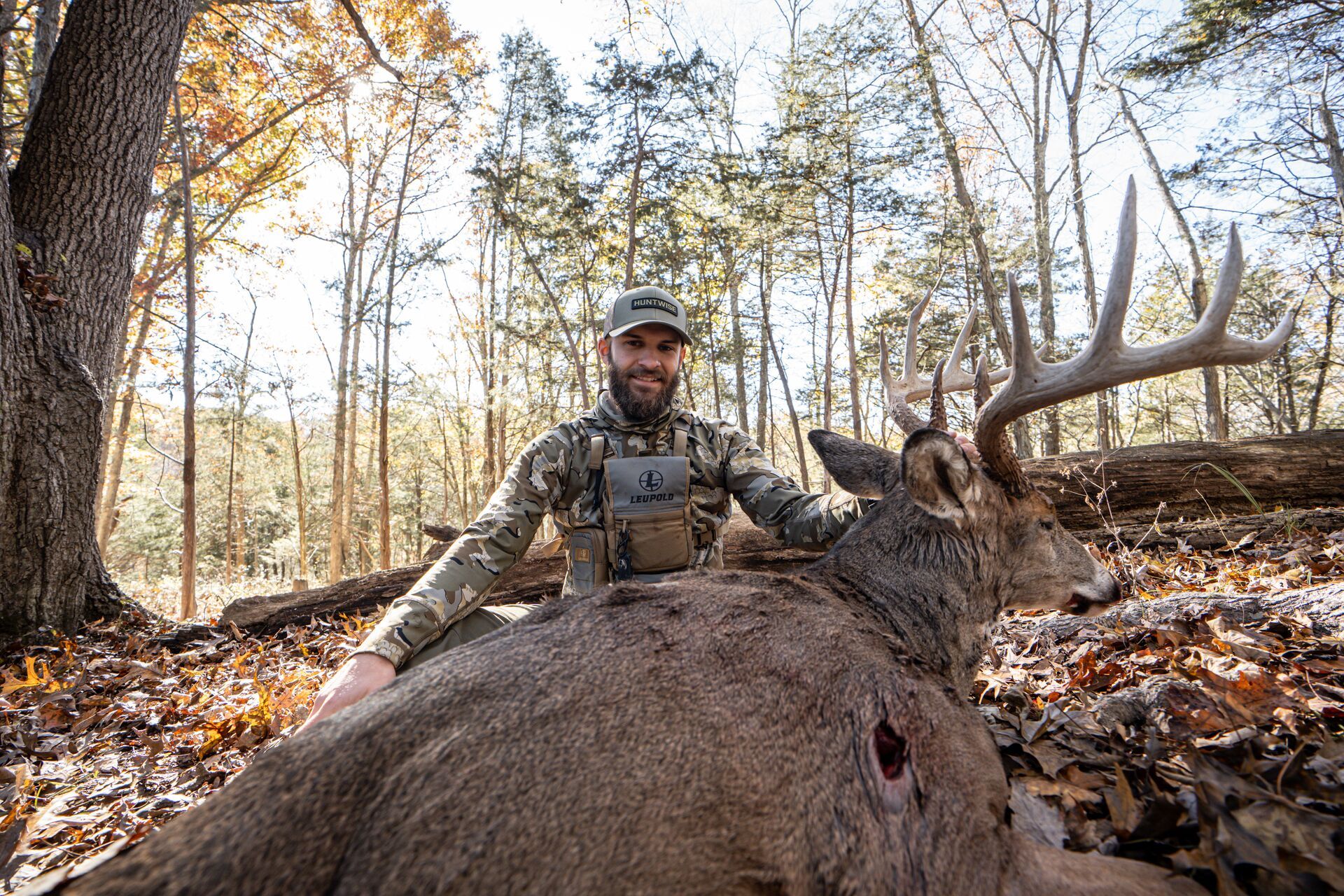
Use HuntWise and These Deer Shot Placement Tips to Tag Out
I was taught from a young age that the best place to shoot a deer is through both lungs. This is the most tried and true method of killing a deer, and you cannot go wrong, especially with a bow and arrow.
If I were to give any advice, it would be to go to the basics, be patient when possible for a broadside shot, and aim an inch or so behind the front shoulder blade. This method will never let you down and is always lethal.
Before you have the opportunity to take a shot at a deer and try these shot placement tips, you'll need to find them! Use HuntWise to plan your hunt. You can draw your hunt area in the app, then use map layers and markers to scout and mark the map with ideal spots to set up for that perfect kill shot.
HuntWise also helps you get into the field on the days when you have the highest probability of tagging out. HuntCast and WindCast help you plan around the weather (with hourly forecasting) so you never miss an opportunity to bring home a deer.
If you don't have HuntWise yet, get it before the season ends and start planning!
We'll give you a week to check us out — free.
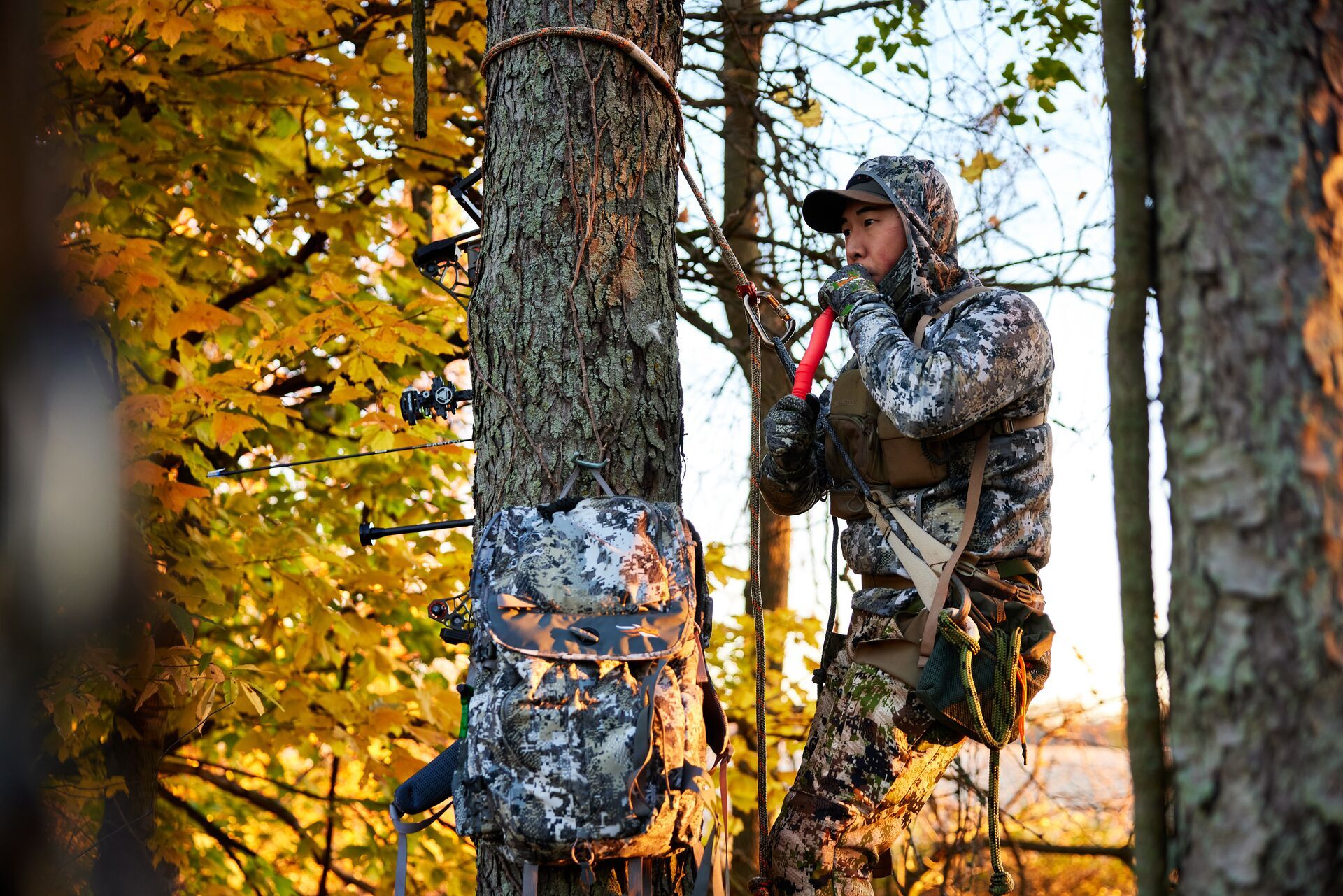
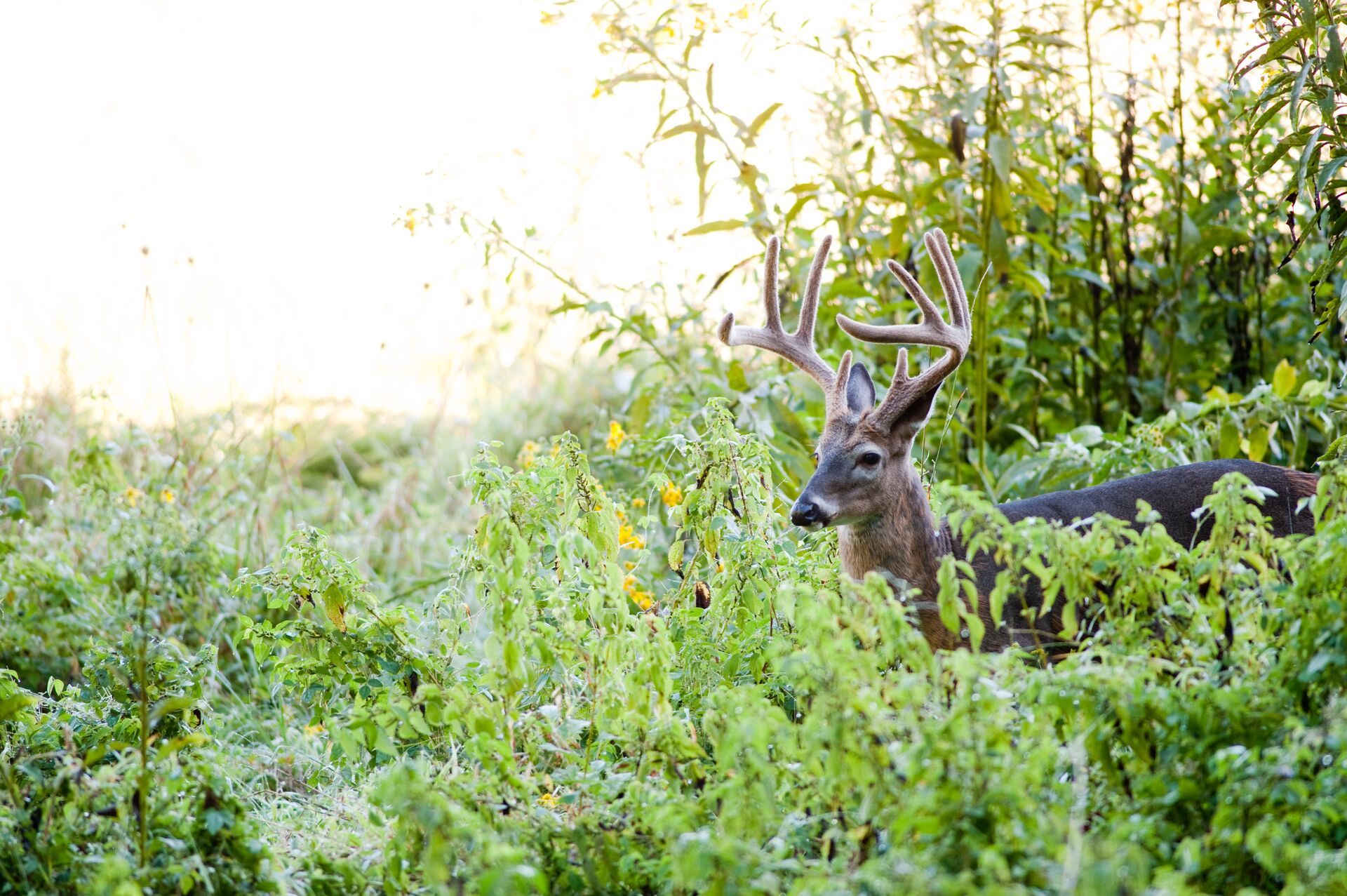
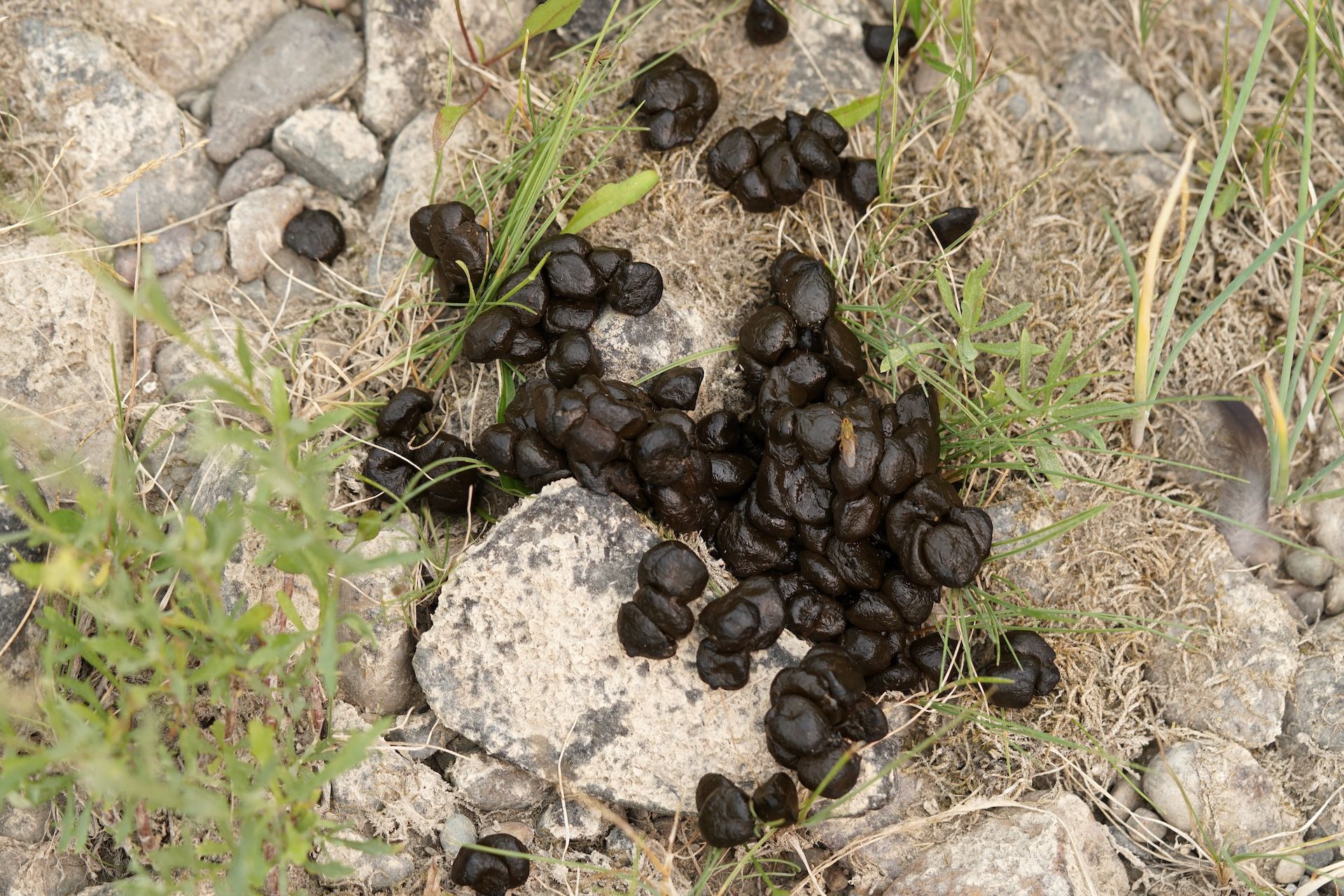
 Deer
Deer Deer
Deer Deer
Deer